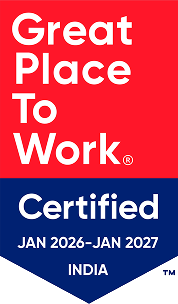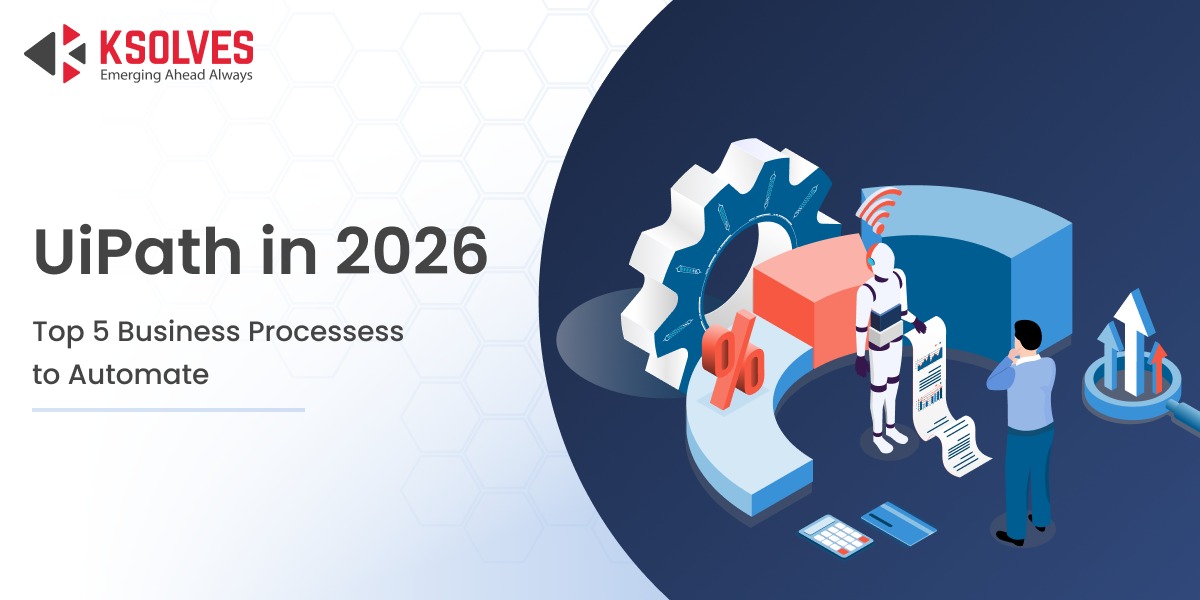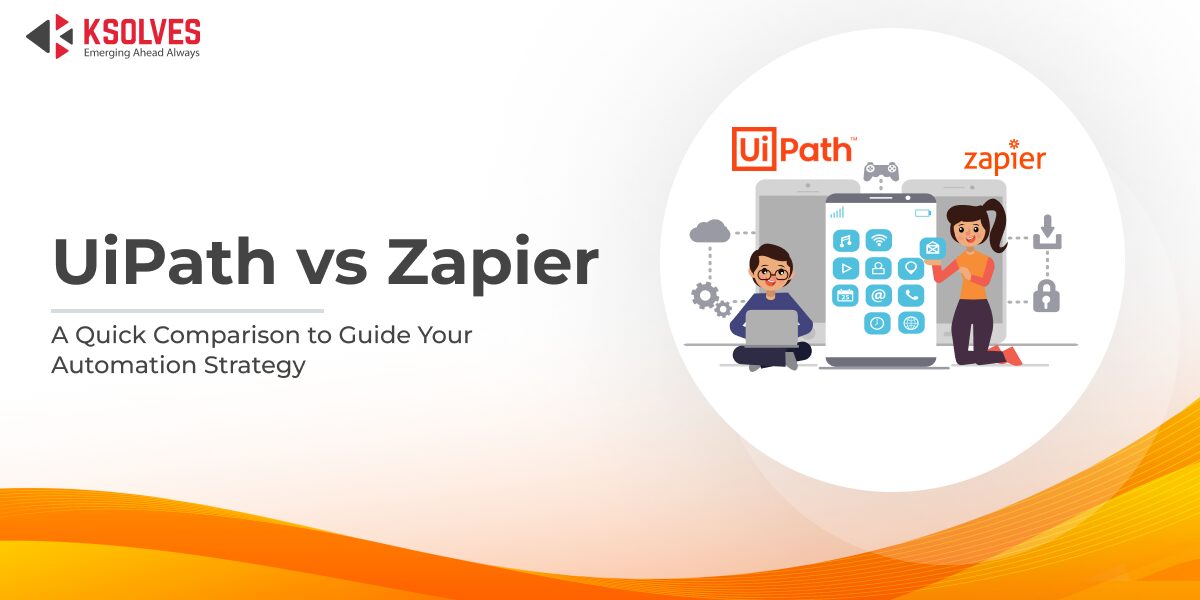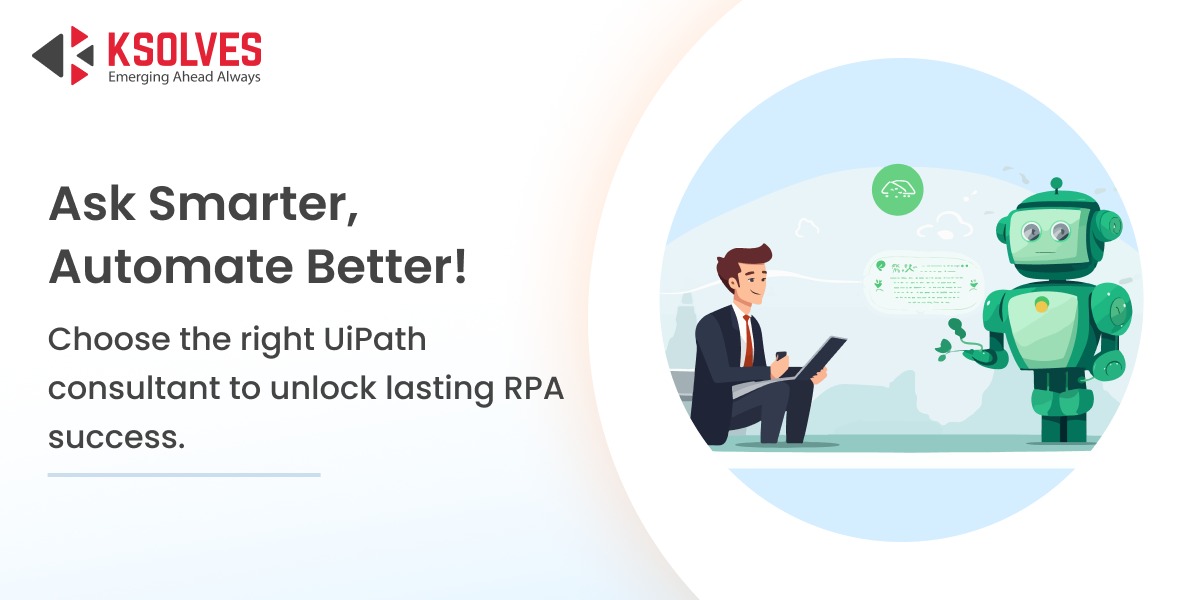What Does a UiPath Consultant Do?
UiPath
5 MIN READ
July 24, 2025
![]()

Automation has long been a goal of modern enterprises, aiming to minimize manual tasks, accelerate operations, and enable human talent to focus on innovation rather than repetition. As this concept evolves, Robotic Process Automation (RPA) has emerged as a solution that includes software robots to handle routine business processes with speed and accuracy. At the center of this movement is UiPath, a leading RPA platform trusted by enterprises worldwide.
But who brings these intelligent bots to life and ensures they deliver real value? The answer: a UiPath consultant.
This blog unpacks the critical role a UiPath consultant plays, including their skills, the impact they make, market demand, and why partnering with the right consultant can redefine your automation strategy.
Key Skills of a UiPath Developer
- Proficiency in UiPath Studio and Orchestrator
- Knowledge of the REF framework for scalable workflows
- Programming skills (VB.NET, C#, Python)
- API and database integration (REST, SQL)
- Strong debugging and exception handling
- Process analysis and optimization
- Clear documentation and communication
- Domain knowledge in business processes (e.g., finance, HR, logistics)
Understanding the Role of a UiPath Consultant
At a high level, a UiPath consultant is an expert in designing, developing, deploying, and optimizing automated solutions using the UiPath platform. However, their role extends far beyond simply writing scripts or clicking through workflows.
Key Responsibilities include:
-
Process Identification and Analysis
- Evaluate existing business processes to find automation opportunities.
- Use tools like UiPath Task Capture and Process Mining to document workflows.
- Perform feasibility analysis to determine return on investment (ROI).
-
Automation Solution Design
- Translate business requirements into technical solutions.
- Architect scalable workflows using UiPath Studio and StudioX.
- Ensure compliance with governance and security standards.
-
Bot Development and Testing
- Build attended and unattended bots that interact with systems, data, and applications.
- Run unit, integration, and user acceptance testing (UAT) cycles.
- Debug and enhance workflows for reliability and performance.
-
Deployment and Orchestration
- Manage automation assets using UiPath Orchestrator.
- Monitor bot performance, handle exceptions, and perform version control.
- Coordinate scheduling, logging, and load balancing of robots.
-
Change Management and Training
- Support end-users and business units during adoption.
- Deliver training sessions to internal teams or citizen developers.
- Facilitate smooth organizational transitions to automated environments.
| Responsibility | Description |
| Process Identification & Analysis | Evaluate existing business processes, utilize tools such as Task Capture, and assess the feasibility of automation. |
| Automation Solution Design | Translate business needs into automation architecture using UiPath Studio and ensure compliance. |
| Bot Development & Testing | Build bots, conduct unit, integration, and UAT testing, and enhance workflow stability and accuracy. |
| Deployment & Orchestration | Use UiPath Orchestrator for deployment, monitoring performance, handling exceptions, and managing scheduling. |
| Change Management & Training | Train end-users, provide documentation, and offer support to facilitate the smooth adoption of automation tools. |
Table 1: Summary of Responsibilities of a UiPath Consultant
Why UiPath? Market Insights & Real-World Relevance
RPA’s Exponential Growth
The global RPA market has experienced explosive growth, and UiPath is leading the charge. According to a report, the RPA market was valued at US$3.7 billion in 2024 and is projected to reach US$81.8 billion by 2031, growing at a CAGR of 36.6%.
Industries Leveraging UiPath Consultants
UiPath consultants work across multiple sectors:
- Banking & Finance: Loan processing, KYC, compliance checks
- Healthcare: Claims processing, patient onboarding
- Retail & E-commerce: Inventory updates, invoice generation
- Manufacturing: Order processing, supply chain coordination
- Telecom & Utilities: Service desk automation, billing processes
The flexibility of the UiPath platform allows consultants to build reusable components that can be tailored for industry-specific needs.
Visualizing the RPA Lifecycle: What a UiPath Consultant Really Manages
While the role of a UiPath consultant spans technical development and business analysis, it’s helpful to visualize their contribution across the entire RPA lifecycle. Below is a typical workflow a consultant navigates from initial process discovery to long-term support:
RPA Lifecycle Stages Handled by a UiPath Consultant:
- Process Analysis: Consultants begin by identifying automation candidates using tools like UiPath Task Capture and Process Mining. This phase focuses on mapping workflows, identifying inefficiencies, and evaluating automation feasibility.
- Solution Design: Once viable processes are found, they’re translated into scalable automation solutions. Consultants use UiPath Studio and StudioX to create architecture aligned with business and compliance needs.
- Bot Development: Here, the consultant builds and configures software robots that mimic human actions. This may involve UI automation, data scraping, API integration, and logic implementation.
- Testing & Deployment: Bots are rigorously tested (unit, integration, UAT) before being deployed via UiPath Orchestrator. Deployment includes version control, environment setup, and scheduling.
- Monitoring & Support: Post-deployment, consultants monitor bot performance, resolve exceptions, and refine workflows. They also train business users and ensure smooth adoption across teams.
Certifications That Validate UiPath Consultant Expertise
In an ever-growing automation market, certifications reassure clients that a consultant is both knowledgeable and up-to-date with the platform’s capabilities. A certified UiPath consultant brings validated skills to the table, which is especially important for enterprise-grade automation projects.
Common UiPath Certifications Include:
- UiPath Certified RPA Associate – Validates foundational knowledge of RPA concepts and UiPath tools
- UiPath Advanced Developer Certification – Demonstrates deep technical expertise in building scalable and complex automation
- UiPath Business Analyst Foundation – Focuses on translating business requirements into RPA solutions
- UiPath Solution Architect Certification (for senior roles) – Covers end-to-end solution design, scalability, and best practices
Certifications also support smoother stakeholder collaboration by establishing trust and credibility early in the engagement.
Measuring Success: How UiPath Consultants Deliver Real Business Value
The actual impact of a UiPath consultant isn’t just in building bots but in delivering measurable results. Whether deployed in finance, healthcare, or retail, automation efforts are judged by how well they align with strategic goals.
Key Success Metrics Include:
- Reduction in processing time for tasks like data entry or invoice validation
- Decrease in error rates by eliminating manual input and standardizing workflows
- Cost savings through efficiency gains and reduced reliance on manual labor
- Higher employee productivity by freeing up staff for more value-added work
Ultimately, a skilled consultant helps drive ROI by aligning automation initiatives with business objectives and continuously optimizing for performance.
Why Hire a UiPath Developer?
For many organizations, building a full-time RPA team can be costly and time-consuming. That’s why more companies are turning to “Hire UiPath Developer”- a flexible, scalable service from Ksolves that gives you access to top-tier UiPath talent on demand.
With an expert UiPath developer, Ksolves offers:
- Certified UiPath consultants with deep domain expertise
- Flexible hiring models (full-time, part-time, or project-based)
- Rapid onboarding to minimize project downtime
- End-to-end automation solutions from process analysis to bot maintenance
Whether you’re starting small or scaling enterprise-wide automation, Ksolves ensures you get the right skills at the right time, without the overhead of permanent hiring. Let Ksolves become your strategic automation partner through their trusted Hire UiPath Developer service.
Conclusion
A UiPath consultant is much more than a technical expert as they are digital transformation enablers who help businesses unlock efficiency, cut costs, and enhance employee productivity. From strategy to deployment and support, their work is instrumental in ensuring RPA projects succeed and scale.
If your business is considering automation, don’t go it alone. Partner with a trusted provider like Ksolves to hire a UiPath developer and begin your journey toward intelligent, future-ready operations.
![]()








Author
Share with